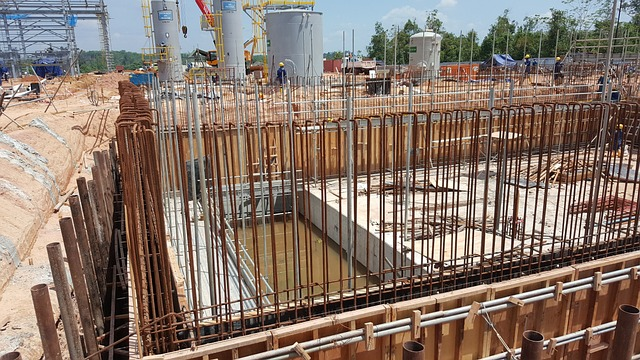Last Updated on August 7, 2023 by Vishnu Nambiar
Civil engineering is an engineering career field which specializes in building and maintenance. It is an important component in physics and mathematics. The following article explains the pros and cons of civil engineering. This guide provides guidance for students interested in engineering. The Engineering course can be completed in different formats need a communication skills. How can one become a civil engineer? How does a job perform? Continue reading to get further insight! As with all professions in the civil engineering industry, there are pros and cons. Civil engineers have many benefits. What is the construction industry and its applications? One question every prospective engineer will need to know in depth is creating and designing the perfect product that would otherwise be difficult. It’s mainly a secret in engineering. In our blogs, we’ll provide you with information about the Civil Engineering Career opportunities available. Civil Engineering is generally defined as an organized discipline that provides professional design, construction and maintenance services to infrastructure systems. Civil Engineering is one of the oldest branches of Engineering. It is a core branch of engineering. In this article, you will be reading about the pros and cons of being a civil engineer. This guide will be of help to civil engineering education aspirants.
Civil engineering courses are available in formats such as – Bachelor’s Degree, Diploma courses and PG courses. So, how is it like to be a civil engineer? What’s the nature of the work like? Read on to know more! Like any other profession, civil engineering also brings with it a set of pros and cons. There are many advantages, when it comes to being a civil engineer. At the same time, the career also poses many challenges and some difficulties. When we talk about civil engineers, the first thing that comes to our mind is buildings and gigantic structures that they design and construct. Civil engineers are not just limited to making buildings. They are also capable of conceiving, designing and constructing roads, dams, canals, bridges, flyovers, highways, public structures etc.
Also read:
Courses after civil engineering
Let us check out the pros of being a civil engineer first –
Qualifications of a Civil Engineer
In addition, an engineer must possess specific qualifications prior to starting his or her civil engineering career. List of qualifications necessary for a career as an engineer. Physics, Chemistry or Mathematics – A student has to pass Physics to apply for admission into engineering programs at any colleges. Admissions examinations at the local and international levels including IIT, JEE, NEET and other. Completion of BS in Engineering from recognized university. In the future an aspiring techie may opt for an M.Tech or MBA depending upon his/her field of work.
Tell me the job of a civil engineering career?
Civil Engineer’s main focus is on executing the design of the building. The career field has, however, expanded in modern times across many industries beyond just construction. Most iconic architectural landmarks, including Dubai’s Burj Khalifa and Sydney Opera House, have been created under exceptional construction management. Civil engineers today are largely responsible for the development and maintenance of all public infrastructure such as rail lines, road network infrastructure, waste network and many more.
Demand
In 2020 the economics report states 95 billion acres will be built. Foots are the demands of construction and while the industry is a big boom, this industry lacks the required labor force in an unprecedented way and need communication skills. The Royal Institution of Chartered Surveyors published its report “Railway & Construction professionals in India by 2020” in a community development, which cited a disparities between 72% of the total. The Indian Government has reportedly proposed the need for 4 million civil engineering professionals by the end of next year.
Scope
Civil Engineering career options seem endless. According to analysts the market growth rate of civil engineering is estimated to increase by around 42% during 2019-2025. Exponential increase in the need to create sustainable housing has given civil engineers the launchpad to acquire larger market share for a civil engineer.
The Complete Guide to Civil Engineering Careers
 I love skyscrapers. Consider engineering careers. Continue reading and you’ll learn the basic information that civil engineer needs – sub-field salary etc. As population reaches new heights as technology advances and as environmental challenges multiply, civil engineering is a field with a high scope of work. In the midst of the 21 century, people are always looking for solutions that can be crafted, rebuilt or maintained. It’s a function for engineers You can count if you have enough resources to have your own construction company if you wish.
I love skyscrapers. Consider engineering careers. Continue reading and you’ll learn the basic information that civil engineer needs – sub-field salary etc. As population reaches new heights as technology advances and as environmental challenges multiply, civil engineering is a field with a high scope of work. In the midst of the 21 century, people are always looking for solutions that can be crafted, rebuilt or maintained. It’s a function for engineers You can count if you have enough resources to have your own construction company if you wish.
Tell me the role of civil engineers?
How do engineers work? What are Civil Engineering Engineers doing? What’s going on with them? The range of Civil Engineering fields includes specialized areas and some job roles. It also depends upon your discipline. Engineering of structures involves calculation of the forces, strength and stability inside structures civil engineer salary. There might be bridges or skyscrapers, they could represent landmarks or even spacecraft in a civil engineer.
Courses & Certification
In order to be considered an engineer, one must possess a Bachelor of Engineering degree. Many more training programs are available to prepare you for your career. Web site: Udemy course: 3D modelling of piped systems in AutoCAD. Price is 6400/-. Format: Online site: Udemy Course. Autodesk Revit. Price is 370/-. Format: Online site: Udemy Course.
How much does a civil engineer make?
Civil Engineering is incredibly paid and plays crucial roles within the communities they serve. The average salary and job placement in that region is pretty good. Hope the chart of civil engineers salaries can give an indication as to the expectations that you’ll receive from your next work depending on the request of the company and other means the construction site has to be previously well planned in order to avoid certain problems that may occur during construction.
Ivil engineer salary – here are some statistics from September 2020
Salary yearly. Senior structural engineer. $110.000 civil engineering supervisor. 12,000 civil engineer projects manager. 82,000 senior engineer. $912,000 civil engineer transportation. $69 000 Mechanical engineers. $333,00 Field Engineer. 46,000 senior civil engineering Highway Engineer. 14,000 senior civil engineering for civil engineering field.
Civil engineering skills
Check out typical skills that can lead to an excellent career in civil engineering. Fundamental abilities Soft skills: Those who are able to work long hours must possess good leadership qualities. Various commonly applied techniques in civil engineering are mentioned below for civil engineering jobs.
Civil Engineering Job Roles
It is noted the role of civil engineering is offered by many businesses and varies by the requirement; however, it is the most important role which allows hiring of engineers in maximum numbers.
Popular Civil Engineering Blogs
This is an extensive list of popular blogs on civil engineering. 
PROS OF BEING A CIVIL ENGINEER –
- Good pay: Skilled and qualified civil engineers often get to enjoy decent pay packages. The quality of the college from which one pursues the course plays and integral role in determining the salary package in a construction projects.
- Job availability: Civil engineering is a core branch of engineering. It is also called an evergreen branch. Most core branches generate better job opportunities (compared to other engineering branches).
- Chance to work abroad: This is especially true in cases of Gulf countries. Civil engineers are in huge demand over there. Pay package is also much better than what it is in India.
- Excellent Government job opportunities: Civil engineers have access to a wide variety of government job posts. Armed forces, Indian Railways, PWDs, NHAI, Municipal corporations, Housing boards etc are known to recruit them on a regular basis.
- Job satisfaction: Civil engineers design and build things. They are capable of designing and building structures like bridges, roads, stadiums, sewer systems, houses etc. They are capable of touching the lives of people directly through their work.
- Respected profession: Thanks to the point mentioned above, civil engineers have cemented a place of their own in the society. It is a respected profession.
- Access to multiple job roles/profiles: Civil engineers may don roles such as – supervisor, field officer, project manager, design specialist, research candidate etc.
- Unique blend of technical expertise and creativity: It is a profession where you may express your creativity, problem solving skills and technical expertise. In short, you won’t be bored and work. You’ll always be motivated and mentally stimulated.
- Away from small cubicle: Lot of civil engineers have access to site work. If you don’t like typical cubicle work setup, you will love working outdoors! This profession takes civil engineers to different locations and environments – hilly areas, seashore, villages, forests etc.
Let us check out the cons now –
CONS OF BEING A CIVIL ENGINEER –
- Long working hours: Many times, projects can be testing and challenging. Deadlines can be hard to meet. Such situations could often result in long and tough working hours. It is not uncommon to see civil engineers work in long shifts to see through projects.
- Hazards at work site: A project site hosts huge construction machinery, vehicles, building materials etc. Dust, sharp tools, pollution, fire and work accidents etc are common occurrences at many work sites.
- Remote locations: Working outdoors could be fun for some. But it is not true in cases of many people. Civil engineers may end up working at some remote and hostile areas. While it could be fun for some, many engineers don’t really enjoy it!
- Increased liability (and thus pressure): Civil engineers usually design and build structures. These structures usually have high strategic, commercial and political value. Lot of planning, calculation and effort must be put into the design of construction of such structures. Eye for detail is something that civil engineers must have. Errors can have dire consequences. This increased liability often leads to pressure (in case of civil engineers).
- Other problems: Other notable problems include – political interference & pressure, protests from locals (near or at site), dealing with corruption, legal disputes, labour disputes and vandalism.
I am Vishnu Nambiar a career and educational blogger from India. I am also a full time educational consultant having more than 12 years of experience in the educational sector.
I share articles related to courses, colleges, careers, exam tips and more here.
